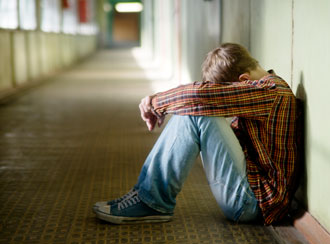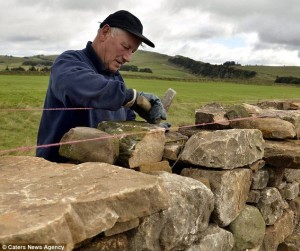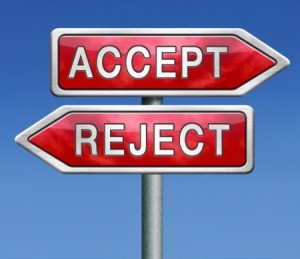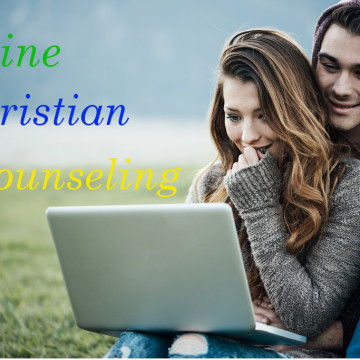Bullying, It’s Abuse At Any Age

 With children headed back to school, bullying easily becomes a topic on many people’s radar, and it should be. Here is something to think about, does bullying end once you graduate from school? No, it doesn’t; many adults are bullied every day. Does that sound surprising to you? It may be even more surprising to know that it can happen in every possible relationship or social interaction, including families, work, churches, and social circles. No one place is immune.
With children headed back to school, bullying easily becomes a topic on many people’s radar, and it should be. Here is something to think about, does bullying end once you graduate from school? No, it doesn’t; many adults are bullied every day. Does that sound surprising to you? It may be even more surprising to know that it can happen in every possible relationship or social interaction, including families, work, churches, and social circles. No one place is immune.
Let’s call bullying what it truly is. Bullying is abuse. The characteristics of abuse include stealing another person’s voice, shaming, humiliation, intimidation, rejection, isolating, criticizing, blaming, name calling, threats, dominance, control, manipulation, and many other behaviors. Stop and think for a minute; that is exactly what happens when someone is bullied, isn’t it? All forms of abuse are serious and the increased rates of suicide due to bullying reveal this fact.
Bullying can be physical abuse, such as a child being shoved or beaten up on a playground, but often it is much more subtle. Maybe you hear bullying and think of a child or teenager being called names. Cyber bullying is something many people have become more aware of in recent years. Social media and text messaging are a fast and often anonymous way for others to quickly gang up on a victim using name calling, pictures, and gossip. The term bullying minimizes the seriousness of the abusive behaviors, because our perception of the bullying of yesterday misrepresents the types of physical, verbal, and emotional attacks that are called bullying today. Our culture is so permeated with verbal and emotional abuse that we have become anesthetized.
Adults are often quick to point out how wrong it is for children and teens to treat each other this way, but what about adults? Think about your own life and those around you. Is there that one person in the office who everyone talks about as soon as he leaves the room? What about that one friend who you’re always quick to gossip about? Have you been in a group of friends who frequently made fun of you without stopping to think that it wasn’t so fun for you? I think of a friend of mine who was singled out by several other ladies in a ministry team. Others saw how they criticized her on a weekly basis, and she could do nothing right in their eyes despite every attempt to please them, but no one stood up to defend her. Adults are also just as guilty when it comes to social media as teens. Have you ever ranted on your Facebook wall about an “anonymous person” who you just can’t stand? Maybe you didn’t name the person, but it’s likely your friends and the “anonymous person” knew exactly who you meant.
As a counselor, when I look at my own statistics with the thousands of people I have counseled, I see 80% or more have experienced significant verbal and emotional abuse. In some cases it’s subtle, and in other’s it’s not. Regardless of the severity, verbal and emotional abuse is an epidemic in our culture. It is not only in the school environment; it is between couples, siblings, friends, in the workplace, in some church environments, and anywhere where people gather together.
We have many statistics on physical abuse, but almost no statistics on verbal abuse because it is often done privately. Most people do not know how to identify the characteristics, and it is rarely reported.
Physical abuse leaves visible markings; this is not the case for verbal abuse, making it much more difficult to identify. Though wounds to your soul may not be visible on the outside physically, they are seen through damaged self-image, fear, a victim mentality, negative expectations and attitudes, and faulty ways of maneuvering though life and relationships. This type of abuse is more damaging than physical abuse, which tends to be cyclical and is followed by the honeymoon phase of remorse, attention, affection, generosity, and even gift giving. Verbal and emotional abuse on the other hand, happens daily; therefore, the effects are more harmful because the abuse happens more frequently. The people who experience this type of abuse often feel crazy, question their feelings and experiences, and minimize what is happening to them. This form of abuse is also more devastating because those who are victimized tend to blame themselves.
Where do these behaviors begin? How can you educate yourself and others to turn the tide in your communities? It begins with an understanding that the behaviors start from the top and trickle down. They influence all who observe them. You see the way people speak and react to each other in every arena: politics, work, church, relationships, movies, television shows, music, and right in your own home. These influences develop and produce thought patterns, core beliefs, and behavioral patterns that develop from your home environment, community, and peer groups. Everything you hear and observe sends a message. Those messages affect the way you think. Your thoughts then form beliefs, also known as mental strongholds. You then make decisions and maneuver through your daily experiences interacting with others based on what you believe.
It is clear that civility, respect, and healthy life skills are lacking when people in authority react poorly to life situations and attack others when they are offended. Children gain messages from watching not just other children but also adults, especially those in their own families. For example, I was in the grocery store one day and a child was lying across the aisle so I could not pass with the shopping cart. I politely said, “Excuse me,” to the mother so she would ask her child to get up, but instead she gave me a very dirty look and said, “Just try and go around him.” The messages that child received were these: “Do whatever you want because others aren’t important, you don’t need to consider others, be rude to divert being accountable for your poor behavior, and you are entitled because your needs and wants are more important than anyone else’s.”
You can change these patterns in society by first examining your own thoughts and beliefs, because how you communicate, cope, handle conflicts, and behave in relationships come from your beliefs. After you identify faulty or unhealthy messages that formed what you believe, you need to tear them down and restructure your beliefs and your behaviors. As a parent, or any adult who interacts with children, you cannot teach them from what you are not or do not have. It is like the old adage, “Lead by example.” You must have personal boundaries to teach your children boundaries. Children are as healthy as the family they are developing in, families are as healthy as couples, and couples are as healthy as each individual. Simple tools can be learned to identify and control your thoughts, improve relationship skills, and create healthy life practices so you can live successfully, and raise children who respect others and display good character.
Wherever you are presently, it is never too late to grow and improve these skills. If we as adults realize we’ve set poor examples and sent the wrong messages, it’s not too late to teach our children. Think of the lessons they can learn by hearing adults explain to them that they were wrong in how they treated someone else. Then, they can see you model healthy behaviors. If we all begin with ourselves, it spreads to our children, and changes our community for the better.
Dr. Michele
Copyright © 2013 by Michele Fleming Ph.D.










Contact With Us